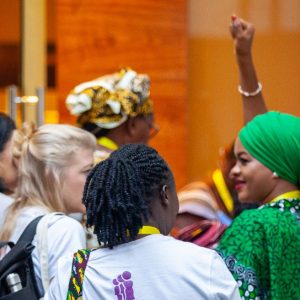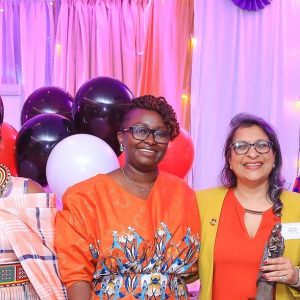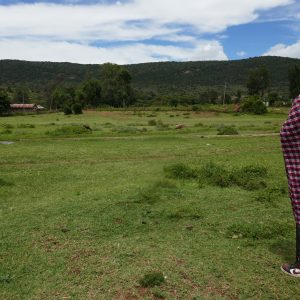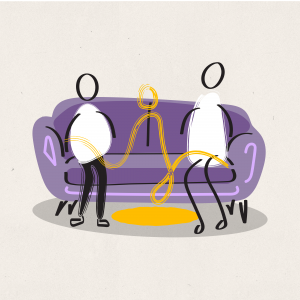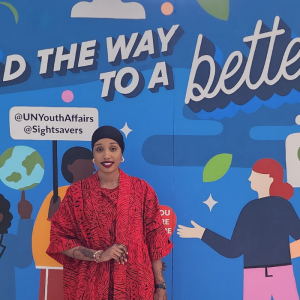Bringing grassroots voices to global spaces, pulling down bureaucratic barriers, and a ground-breaking commitment from HE President Uhuru Kenyatta to end female genital cutting (FGC) in Kenya by 2022; these are just a few highlights from the recent Women Deliver 2019 conference, where Orchid Project was part of a cross-sector coming together of organisations working to end FGC, and also held an activist-led, interactive workshop with stakeholders from across the sector. Alongside Orchid representatives and a group of inspiring activists we supported to attend, Wairimu Munyinyi-Wahome, Exective Director of Orchid Project’s partner Coalition on Violence Against Women (COVAW) leant her voice and experience at the gathering in Vancouver, Canada at the start of June. Here, she reflects on what was achieved and her views on how to actualise the outcomes and collaborations found there, to drive the movement to end FGC forward.
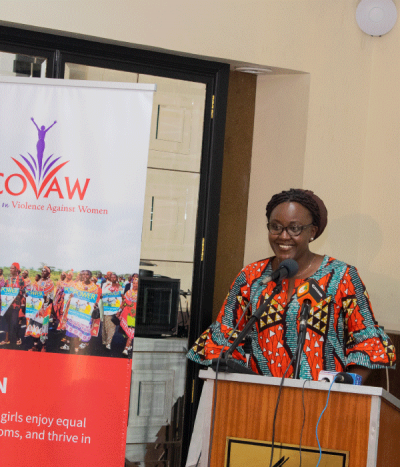
Wairimu Munyinyi-Wahome, speaking at an event for COVAW.
I arrived in Vancouver with high hopes for the coming days at Women Deliver 2019. Global spaces are often not designed for the inclusion and amplification of grassroots, global south voices, so I was heartened to be representing the communities COVAW works with in Kenya, and bringing those experiences to the international space.
Even more encouraging was to see the vitally important issue of female genital cutting (FGC) coming more into the spotlight. In the communities COVAW works with in Narok, South Kenya, approximately 78% of girls undergo cutting. This involves the removal or injury to a girl’s external genitals, for no medical reason, and can often result in health consequences that follow her throughout adult life, and can lead to school drop-out, child marriages, and economic exclusion, amongst other negative impacts. Despite the many severe consequences of FGC, it has often been a sidelined or orphaned issue, however at the Women Deliver gathering, we saw it given much greater prominence as a priority when it comes to addressing gender inequality.
Listening to communities should not just be a tick box – it must be integral to how interventions are designed and implemented.
Across the conference, I saw donors, partners and allies to the movement prioritising grassroots voices, listening to the lessons learned there, and being open to bridging the gaps that have so long existed between these two spheres. One major hurdle in the movement to end cutting has been that, while community voices have been listened to, there appears to be little or no intention to align interventions with the solutions proposed by those voices. Listening to communities should not just be a tick box – it must be integral to how interventions are designed and implemented.
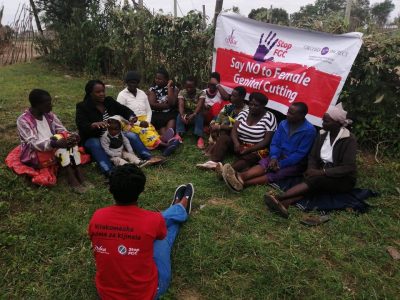
A community dialogue in Kenya held by COVAW – part of a partnership with Orchid Project “Giving Voice to Communities to End FGC”.
Communities we work with continue to practice cutting because it is seen as a way of ensuring a girl is included and accepted in society. In a context of high poverty, where there are no structures like welfare systems to speak of, cutting can be viewed as a form of “social insurance” or safety net, designed to protect girls from social exclusion or being ostracised. If we are to address how we can protect girls from violence and harm, we first must understand the reasons communities continue practices like FGC, and the complexities around it, including the perceived value attached to the practice. The more we’re able to share the realities that communities face, the more we are able to respond, and the more likely we will be to achieve our goals.
A key factor in this is understanding that whole communities must be included in discussions and decisions around FGC. While the decision to cut a girl is often made at a household level, the entire community has great influence on that decision because an uncut girl may be ostracised and may not be able to marry. Such an outcome can be devastating for a girl’s livelihood and social inclusion. Understanding this challenge, and working together as NGOs, community-based organisations, activists, donors, partners and allies, is a key step towards achieving abandonment of the practice.
It is up to us as civil society to engage with President Kenyatta’s promise, hold it to account, and communicate how change is happening and can be accelerated, so his words can come true.
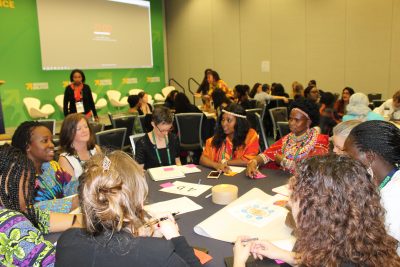
Delegates at the WD2019 pre-conference, 2nd June 2019, Uniting Forces to Ensure FGM/C is a Practice of the Past.
And we are already seeing significant shifts that I hope will further this goal in Kenya, and globally. My highlight of the entire Women Deliver gathering was a commitment from HE President Uhuru Kenyatta of Kenya to support an end to cutting in my country by the end of his term in 2022. This is ambitious, but I believe that with the right resources, investment and approach, it is possible. Political leaders must follow up such commitments by better understanding the inextricable links between FGC and other issues they hold dear, such as health and education, which I hope will motivate them further to throw their weight behind this issue. Now it is up to us as civil society to engage with President Kenyatta’s promise, hold it to account, and communicate how change is happening and can be accelerated, so his words can come true.
Women Deliver also renewed my belief in the power of collaboration. Amongst a group of inspiring survivors, activists, NGOs and allies, COVAW was part of producing 5 calls to action, alongside Orchid Project, as we united to end FGC by 2030, in line with the UN Sustainable Development Goals. These global calls were:
- Support change from within to challenge social and gender norms
- Strengthen research to build the evidence base of what works
- Provide better support and services for survivors
- Recognise the impact of emerging trends in FGC such as medicalisation of the practice and lower ages of cutting (often an unintended consequence of authorities cracking down on the practice
- Increase resources to achieve the global goal
As civil society, we have a responsibility to ensure these things are actualised. We must make good on our commitments, hold others to account, and ensure that ending FGC remains a priority in this space. From where I sit, I was able to learn at Women Deliver 2019, build COVAW’s networks, and engage with donors and partners that want to hear from grassroots voices.
Vitally, I’ve come back to Kenya with even greater conviction that we must give power to the voice of communities we work with. It’s a continuous process, and without the involvement of the women, girls, men and boys we serve, change will not be possible. I will be moving forward emboldened by this experience, with even more courage and faith that we can end FGC in Kenya and globally, so all girls and women can live free from the practice.
Orchid Project is grateful to the generous support of Amplify Change, whose funding enabled our sponsorship of Wairimu Munyinyi-Wahome, Executive Director of our partner COVAW, to attend Women Deliver 2019.

